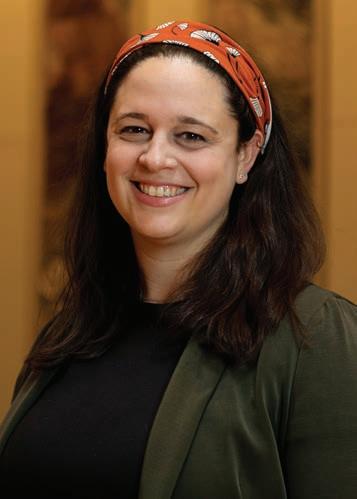
4 minute read
The religious accommodation test
Title VII of the Civil Rights Act of 1964 prohibits employers from discriminating against workers based on religion and other protected categories. That law also requires employers to make reasonable accommodation for a worker’s religious beliefs — so long as those accommodations don’t impose an “undue hardship on the conduct of the employer’s business.” But what does “undue hardship” really mean?
Forty-six years ago, in Trans World Airlines, Inc. v. Hardison, the Supreme Court ruled that “undue burden” was defined to be “more than a de minimis cost.” In other words, employers must accommodate a worker’s religious practices and beliefs if it can be done easily and at minimal cost. Otherwise, the employee is out of luck. That very low standard has enabled employers to refuse many religious accommodation requests and has frustrated those seeking to require employers to do more to accommodate the religious practices of their workers. That may soon change.
Advertisement
The Supreme Court has agreed to review the case of Gerald Groff, an evangelical Christian who observes Sunday as a day of worship and rest. Groff worked as a non-career auxiliary mail carrier for the U.S. Postal Service. His job was to fill in when other workers were not available, including on weekends and holidays. For the first few years of his employment, then sued the post office for its failure to accommodate his religious beliefs.
Both the trial and appellate courts found that the post office had made reasonable accommodation for Groff’s religious beliefs. And they found that to
We don’t live in a perfect world. But even in an imperfect world, consistency is important. Many U.S. allies are not squeaky clean. Yet we regularly sell arms to allies with contemptible human-rights records, including to Saudi Arabia, Egypt and other Middle East regimes. That doesn’t excuse their human-rights abuses. Instead, we try to use the leverage of increased interdependence and support to spur discussion and address humanrights concerns.
The same approach should apply to Turkey. JN change things. For most court watchers, the question isn’t whether the Hardison case will be overruled but how far the court will go in defining the standard for “undue hardship.”
Religious public-interest groups are urging a standard like that of the Americans with Disabilities Act, which requires accommodations for disabled workers unless doing so presents an “undue hardship” on the employer and defines “undue hardship” as an “action requiring significant difficulty or expense.”
Groff was not asked to work on Sundays. But demand for fill-ins increased when the post office started delivering for Amazon on Sundays. Initially, Groff himself or his managers were able to arrange for others to fill in for him on that day. But as demand mounted, Groff was threatened with disciplinary action if he didn’t take assigned Sunday shifts. Rather than face the disciplinary threat, Groff quit. He require anything more would impose an undue hardship on the post office and on Groff’s co-workers. Those rulings were consistent with decades of other court conclusions since the Hardison case was decided.
But today’s Supreme Court — with its 6-3 conservative supermajority and a pronounced sensitivity to religious accommodation — is widely expected to
A Note On Opinion
Such a change would be a big deal, particularly since the ruling could impact a lot more than the scheduling of work shifts. Things like an employer’s grooming and dress-code requirements, workplace expressions like the wearing of religious objects and symbols, and even workplace prayer activity could be implicated by any new definition of “undue hardship.”
There will be a lot riding on how the court seeks to balance the competing interests of employers and their workforce. We look forward to argument on the case and a decision later this year. JN
We are a diverse community. The views expressed in these opinion pieces do not necessarily reflect the views of the officers and boards of the Jewish Community Foundation, Center for Jewish Philanthropy, Jewish Federation of Greater Phoenix, Mid-Atlantic Media or the staff of the Jewish News. Letters must respond to content published by the Jewish News and should be a maximum of 200 words. They may be edited for space and clarity. Unsigned letters will not be published. Letters and op-ed submissions should be sent to editor@jewishaz.com.
Irecently attended a bris in my community where the mohel announced to the new parents and the whole room, “Raising this child is the most important and impactful thing you will ever do.”
These words were offered to anchor the already exhausted and overwhelmed couple in the sanctity of the job they are embarking upon; the holiness of shaping a person into adulthood; the pride in doing something meaningful and lasting.
At the same time, these are the sentiments that form the foundation of parents’ guilt when they have to work or when they choose to be with friends and not their children. They create the basis of self-recrimination when a child struggles and the parent is made to feel they are to blame. They foment anxiety over not enjoying aspects of parenthood or feeling lonely or isolated in the endless exhaustion of rearing children.
These are also the words that shame those of us who have no children.
The year I turned 30, I was not on any identifiable path to parenthood. I was, however, in rabbinical school and deeply committed to the ways I could and would serve the Jewish people as a rabbi. Until rabbinical school, I experienced my own private grief about not having a partner or kids, but no one had ever imposed those feelings on me or pressured me on my timeline.

As part of a counseling course in rabbinical school, I was assigned a reading where I learned that 13.9% of married women ages 30-34 experience infertility (a percentage that only increases after 35). Thirty years later, the author who shared this data did so again at an allschool gathering, reminding us that women pursuing education were largely responsible for the decline in Jewish population, since the ideal age for a woman to get pregnant is 22. He added, in essence, “Don’t come crying to me when you finish your education and










